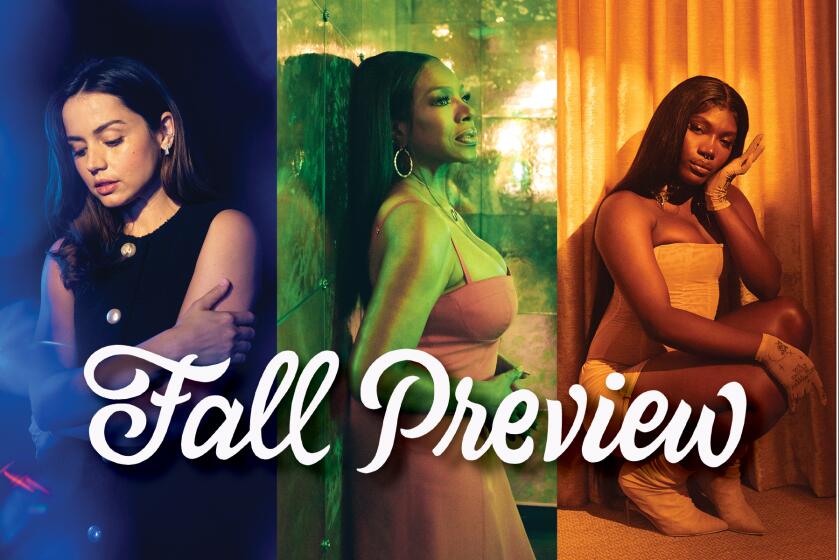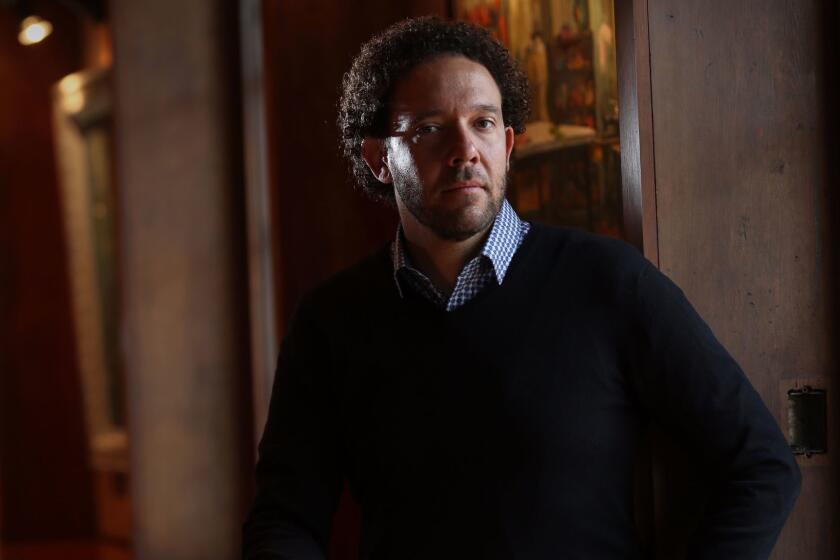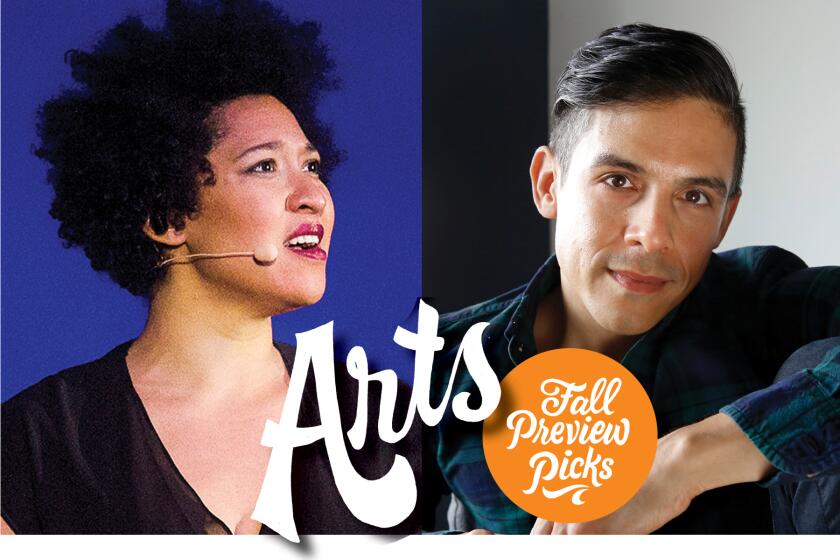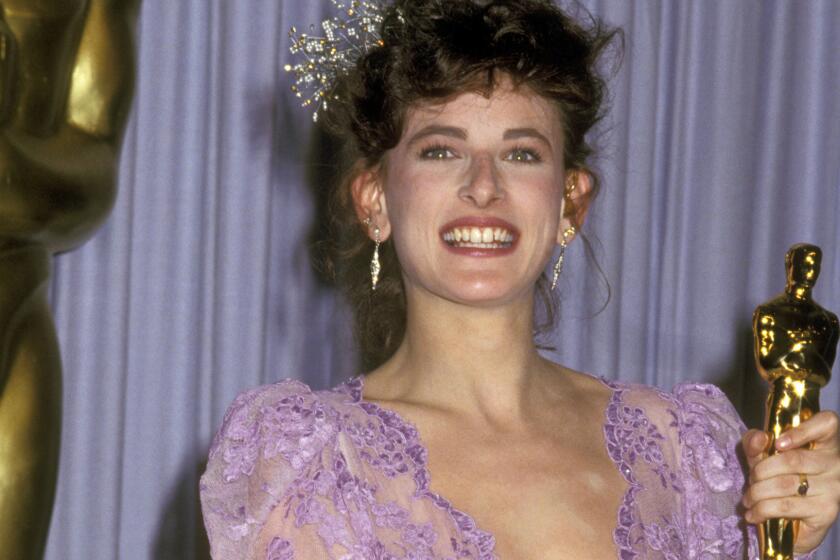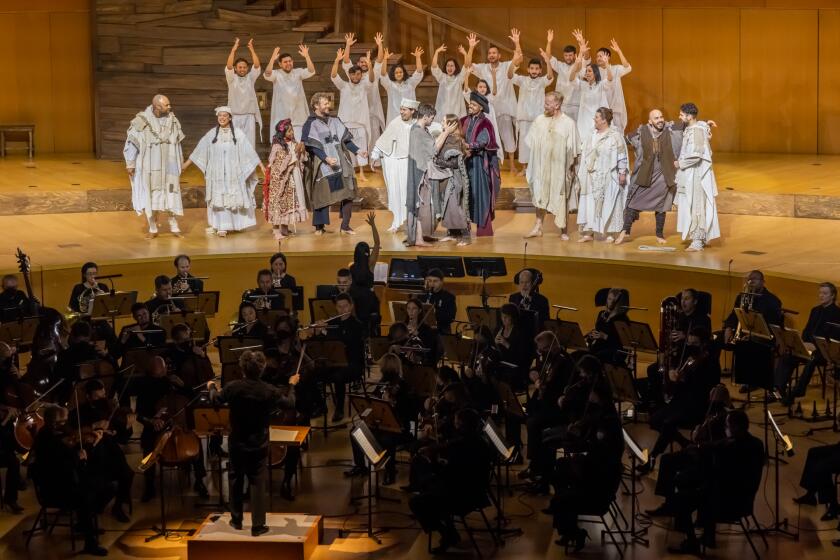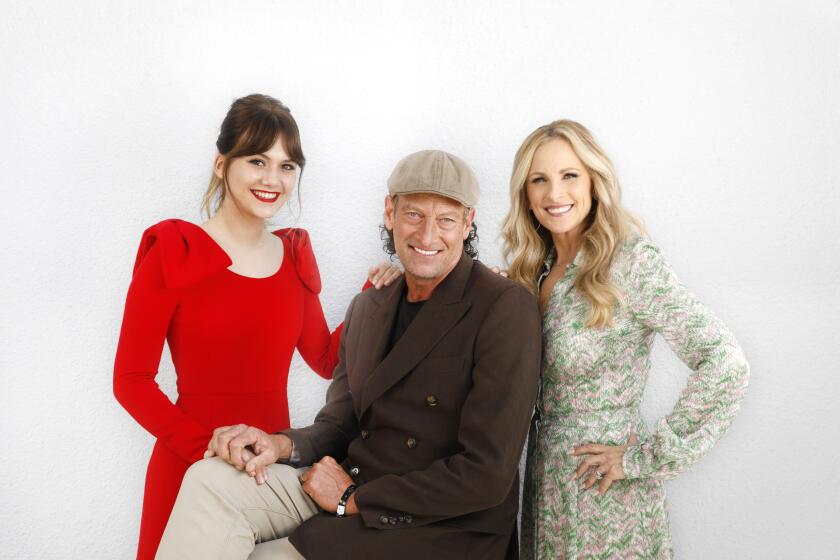How L.A.’s Deaf West is becoming the American theater company of the moment
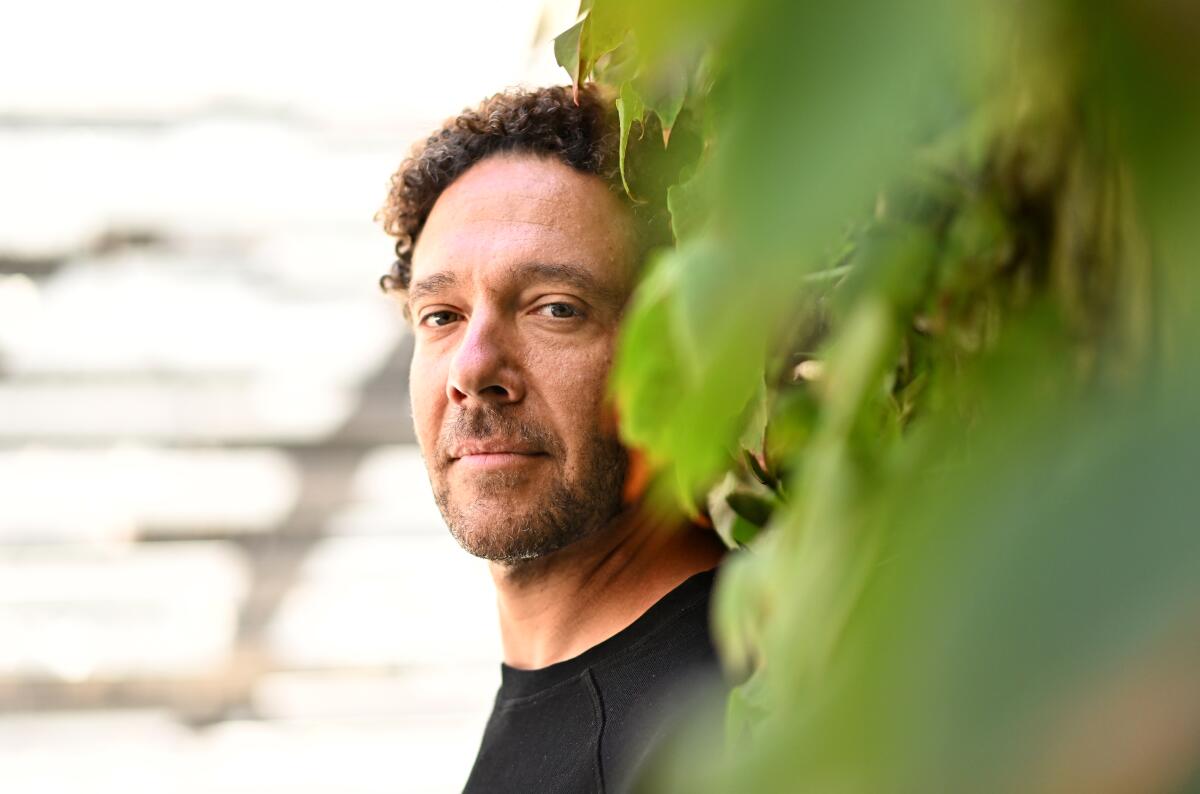
- Share via
Silence is tangible — an energy that ripples through the atmosphere. It can be felt at the Getty Villa during a recent rehearsal for Deaf West Theatre’s upcoming production of “Oedipus,” as bodies move across the stage with practiced fluidity. The occasional squeak of sneakers pierces the air, but otherwise the quiet is absolute, settling over the theater like a soft blanket.
Although the production, which runs through Oct. 1, features hearing and deaf actors, nobody is voicing lines at this time. All conversation is happening in American Sign Language, and also in Protactile, a still-emerging language used by deafblind people to communicate via touch.
For the record:
10:39 a.m. Aug. 26, 2022An earlier version of this article erroneously said Oedipus is played by a hearing actor. The character is played by a Deaf actor.
In Deaf West’s “Oedipus,” the blind prophet Tiresias is played by deafblind actor Ashlea Hayes. A Protactile interpreter stands beside Hayes as she interacts with other cast members, as well as with the show’s co-ASL choreographer, Alexandria Wailes, who also plays Jocasta.
Fall arts and entertainment picks from music, books, TV, arts and movies.
Hayes gently holds Wailes’ hands as Wailes signs, while a Protactile interpreter deftly taps fingers on Hayes’ shoulders and back. These taps convey supplemental information beyond what is being said, explains Deaf West Artistic Director DJ Kurs. For example, gentle taps signify that other people are nodding. Stronger taps indicate that a question is being asked of Hayes, or attention is being drawn toward her. A finger scrolled on the back means that someone entered the room in that direction.
Several hearing interpreters wait in the wings, ready to jump in if a hearing actor, or the hearing director, Jenny Koons, begins talking. The deaf actors sign to one another. The theater buzzes with communication in all its layered and varied forms.
“The intersectionality is where beautiful things happen — when deaf and hearing people come together in service of creating art. And that doesn’t happen often enough,” says Kurs via an interpreter.
Kurs sits on a shaded patio at the Getty Villa during a break from rehearsal. He is tall and slender, with curly hair, a kind smile and serious eyes. He was raised by deaf parents in Riverside and attended Gallaudet University in Washington, D.C., before moving to L.A. and becoming involved with Deaf West, eventually taking over leadership in 2012.
Kurs is dogged in his pursuit of equity for deaf actors, and he considers himself as much an activist as he is an artist. He says successful collaboration between deaf and hearing actors grows the field for deaf artists, including deaf writers, producers and directors, as well as deaf crew members and staff behind the scenes.
“All of this is a connected process,” he says.
Deaf West Theatre was created by the deaf community as a place where deaf actors could come together with hearing actors in service of vivid theater.
American Sign Language is poetry in motion — a full-bodied form of expression filled with nuance and grace. It can be translated into spoken English, but it has its own syntax, grammar and rules. In many ways, it’s the perfect language for the stage, a place where actors use the entirety of the human form to communicate.
Still, deaf actors have struggled to gain a foothold in the mainstream world of American theater. That struggle has been aided in no small part by the L.A.-based nonprofit. Founded in 1991 by deaf actor Ed Waterstreet, Deaf West became the first regional theater company in the country led by a deaf artistic director.
More than 30 years later, the company has evolved into an internationally recognized powerhouse with almost as much work in New York City as it has in L.A. (Kurs is hoping to open a second headquarters for the company in NYC.) It has managed to do this while remaining relatively small: The company has only three full-time employees, including Kurs, and this year is operating on a budget of about $850,000.
Twenty-one art shows, theatrical productions, classical concerts and operatic works our arts critics are looking ahead to in the coming months.
Longtime Deaf West collaborator Wailes, the actor and co-ASL choreographer for “Oedipus,” loves the fresh opportunities she is seeing but is careful to credit the progress not just to Deaf West but also to the hardworking artists who came before, including those who founded Deaf West after working with the National Theatre of the Deaf, which began operating in 1967.
“I remind myself every day that we are riding on the shoulders of other brilliant artists,” Wailes says via an interpreter. “People before me have navigated so much oppression, limitations and obstacles. And there weren’t always a lot of high expectations. So I’m grateful they were able to raise the bar, in order to give us the space to raise the bar even further.”
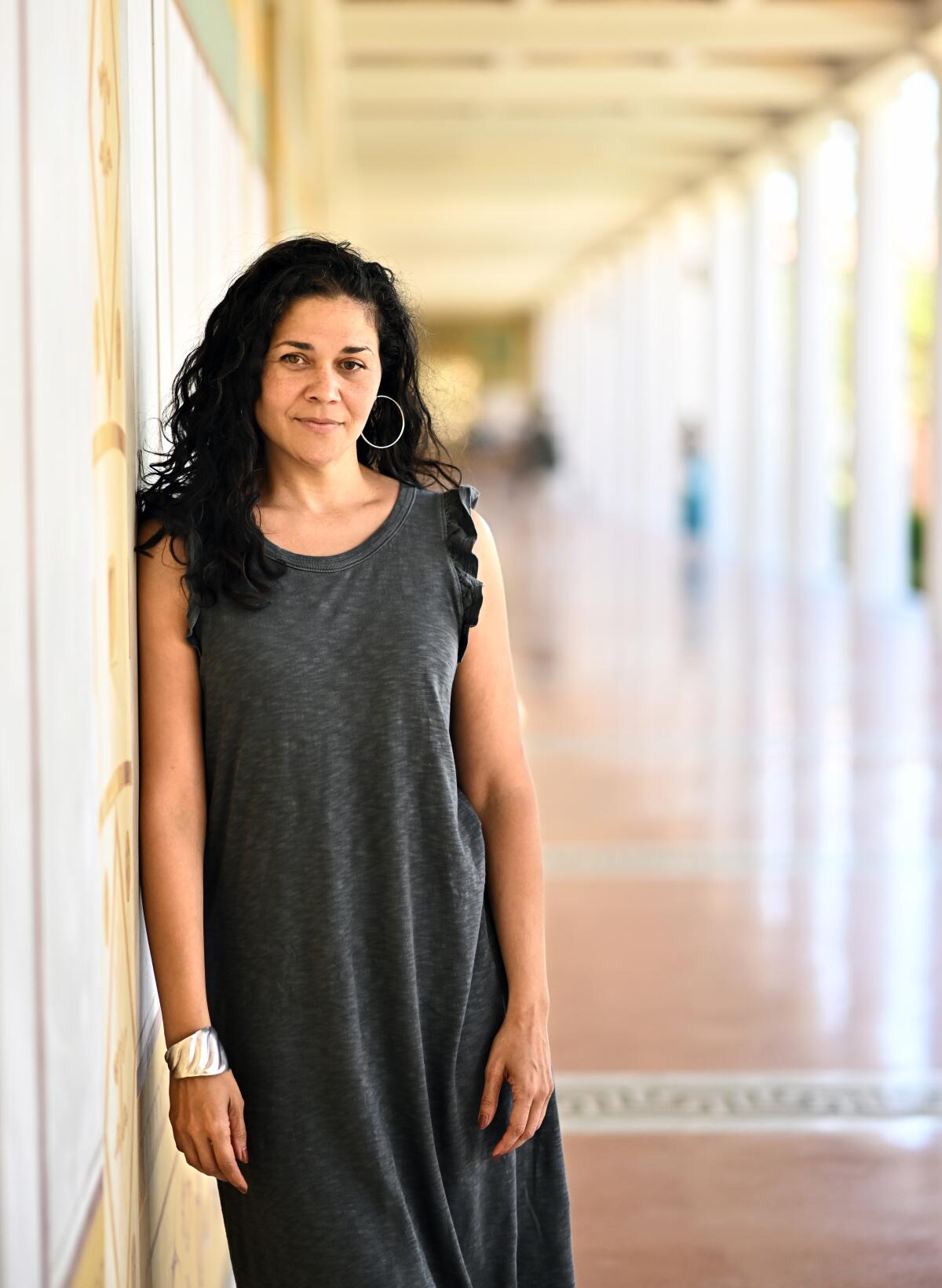
Deaf West has cultivated a reputation for its innovative, risk-taking productions featuring deaf and hearing actors working together on unexpected interpretations of plays and musicals that have resulted in successful Broadway runs, including the Tony Award-nominated musicals “Big River” and “Spring Awakening.”
Kurs explains the process of bringing a Deaf West production to life, emphasizing that it takes quite a bit longer than developing a traditional show for the stage. Workshopping material is essential, as is identifying the “why” of the show.
“I’ll ask myself, ‘Is this authentic? Is this worth it? Does this break new ground? And can we find the right group of artists to achieve this?’” Kurs says.
In the case of “Oedipus,” Kurs is particularly excited about the mix of Greek theater and sign language. Koons also has introduced a novel gestural language to be used by the chorus — a unique fusion of physical theater and the pictorial language rooted in ASL, which Kurs calls “visual vernacular.”
Hayes is also the first deafblind actor to act in a Deaf West show, and this will mark the first time Protactile will be used in a Deaf West production.
Kurs says his ultimate goal is to get more Deaf stories told on a larger scale, and on bigger platforms.
“Deaf sitcoms, for example, Deaf Disney movies, those kinds of things,” he says. “Stories that are told authentically, with deaf people involved at each level.”
Deaf West regularly collaborates with Hollywood casting directors to get deaf talent onto film and TV sets, and it’s working with Utah Schools for the Deaf and the Blind on developing a national high school theater festival for the Deaf.
I wasn’t old enough to see the original 1979 run of “Children of a Lesser God” by Mark Medoff, who died Tuesday at 79.
Casting director Sharon Bialy, who recalls attending Deaf West shows before she placed deaf actors in the 1995 movie “Mr. Holland’s Opus,” says Deaf West is a primary contact for anyone looking to cast deaf actors. The company helps with outreach and makes sure that the language in casting calls is respectful of Deaf culture. It also helps ensure that quality interpreters are used during casting calls.
“They’re incredible advocates for the Deaf community,” Bialy says, adding that in her early days of casting, she learned some sign language herself because interpreters were not always required. “And equally as important, they’re supportive for those of us who are not deaf, who are trying to explore the community and advocating for deaf actors.”
Deaf West’s up-and-coming projects include developing this year’s best picture Oscar winner, “CODA,” into a stage musical; a theatrical adaptation of Brian Selznick’s “Wonderstruck,” directed by Rebecca Taichman; a workshop of an adaptation ofa popular (yet-to-be-announced) musical with Tony-nominated director Michael Arden; and a collaboration with Disney Music Group on ASL covers of music videos highlighting songs from the animated hit “Encanto,” including “We Don’t Talk About Bruno.”
Kurs says the pendulum is on the upswing at the moment, but he is well aware that it could swing right back. In the meantime, he’s determined to make as much headway for Deaf West and its artists as he can while the going is good.
Gustavo Dudamel returns to the L.A. Phil to lead a new production of Beethoven’s “Fidelio” with Deaf West Theatre.
The upswing peaked earlier this year after longtime Deaf West actor Troy Kotsur stepped onstage at the Academy Awards to accept the Oscar for supporting actor for his performance in “CODA.” That film’s director, Sian Heder, had formed a close relationship with Deaf West while developing and shooting the film.
Kotsur was a star at Deaf West, having acted in more than two dozen productions with the company since its founding. Ask anyone involved with Deaf West and they will tell you a Kotsur story. Kurs remembers seeing Kotsur smoking outside the stage door after attending a show when he was a kid and thinking, “Yeah, he’s cool.” He also realized at that moment that Kotsur was part of an extraordinary group of people that he wanted to be a part of.
And Arden, the director who shepherded the Deaf West production of “Spring Awakening” from the Rosenthal Theater at Inner-City Arts in downtown L.A. to Broadway, remembers sharing a dressing room as a young actor with Kotsur. Arden, who knew no sign language at the time, says Kotsur taught him lots of signs, “most of them dirty words,” he says, laughing.
“To see these performers blossom, and go on from theater to film and television, and win Oscars, has been so exciting,” says Arden. “It’s incredible that this organization retains its small-theater intimacy and grassroots mentality but also has joined the ranks of some of the most exciting and successful theater companies in the world.”
‘CODA’ star Troy Kotsur is the first Deaf male actor to receive an Oscar nomination. He is nominated for supporting actor for his turn as Frank Rossi.
Kotsur says via an interpreter during a recent Zoom interview that he’s certain he would not have become an Oscar winner without the 30 years he spent acting in Deaf West shows, including, “A Streetcar Named Desire” and “Cyrano.”
“Deaf West was such a small theater at the time,” he says. “So imagine all the entertainment business offices in L.A. that were so ignorant, and just ignoring all the talent at Deaf West.”
Kotsur says about 80% of the audience was hearing, and he saw the opportunity to “educate them with storytelling through sign language, and also show them how deaf and hearing actors could collaborate together onstage.”
Kotsur calls this artistic education “the big picture.” It’s a sentiment shared by Kurs and others interviewed for this story. The idea that creating Deaf-led theater is not just about art. It is about layering meanings, finding new pathways of communication, fostering lasting relationships and building a more just and equitable world for deaf people.
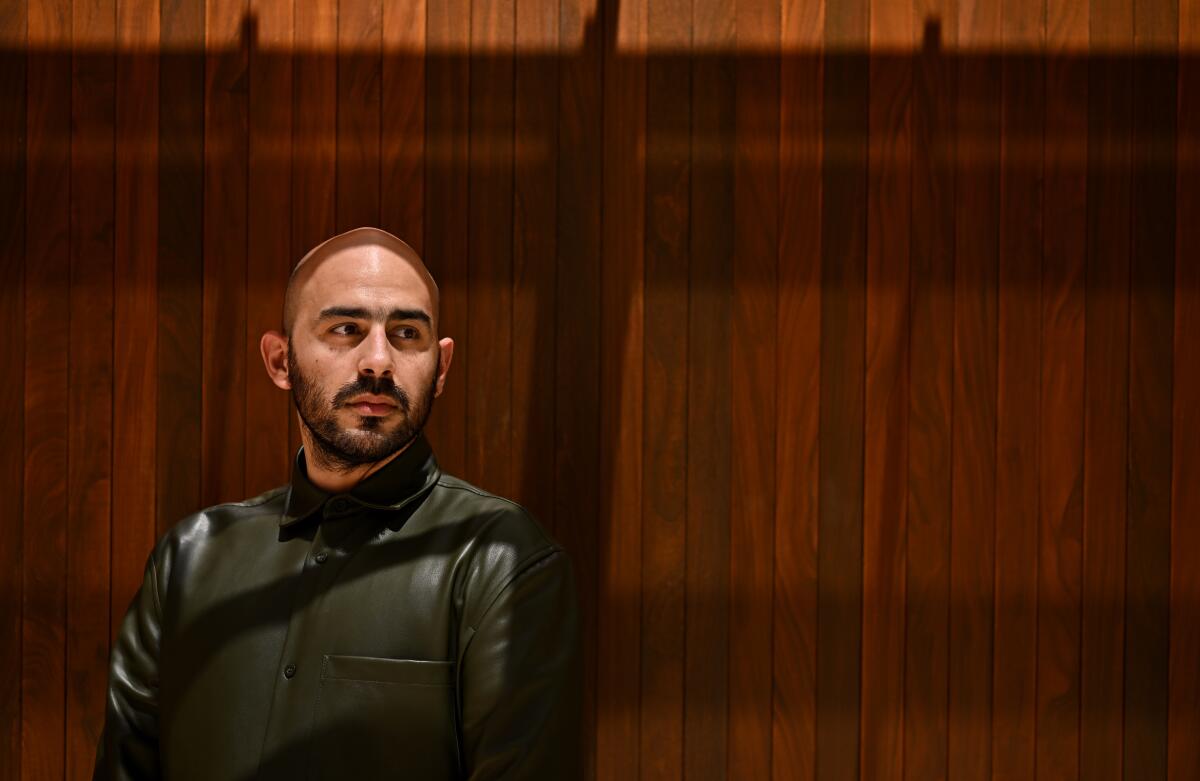
Gregor Lopes, who plays Corinthian in “Oedipus,” says Deaf West has already changed his vision of what is possible in life. Lopes, who proudly identifies as queer, deaf and Latino (he was born in Brazil and raised in Florida), says he has experienced homelessness and struggled to find his place in the world.
Lopes was a natural performer but hadn’t done much acting when he auditioned for Deaf West’s production of “Fidelio,” an operatic collaboration with Gustavo Dudamel and the Los Angeles Philharmonic that ran at Walt Disney Concert Hall in April.
The experience was a revelation. Lopes found immense relief in the fact that he could take a break from constantly advocating for himself as a deaf person — and just concentrate on being an artist.
“Some environments are kind of dreadful,” Lopes says, adding that it’s hard to get an interpreter or any other specialized accommodations. “Here, I don’t have any limitations. ‘What do you need? We’ll give it to you.’ We are well taken care of.”
More to Read
The biggest entertainment stories
Get our big stories about Hollywood, film, television, music, arts, culture and more right in your inbox as soon as they publish.
You may occasionally receive promotional content from the Los Angeles Times.
